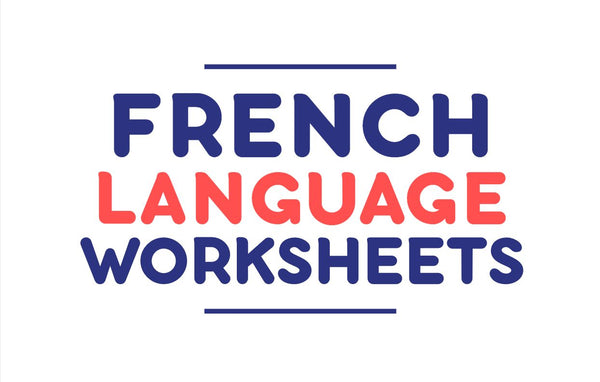Help to Pass GCSE French: The Guidance for Success
Preparing for GCSE French can feel daunting, especially if you’re worried about the speaking exam, struggling with grammar, or simply unsure where to start. The good news? You don’t need to be fluent to do well. Success comes from consistent practice, smart exam strategies, and using the right resources.
In this complete guide, you’ll learn / see:
- Help on how to pass GCSE French step by step
- How to prepare for the French speaking exam
- What to do if you’re struggling with GCSE French
- Top GCSE French exam tips
- FAQs with expert answers
We’ll also link to free quizzes, flashcards, and revision tools so you can put this advice into practice immediately.
Help on how to Pass GCSE French
Passing GCSE French is about covering all four skills listening, speaking, reading, and writing, while building confidence in grammar and vocabulary. Here’s a step-by-step plan:
1. Master Core Grammar
French grammar is the backbone of the exam. Focus on tenses first:
- Start with the present tense quiz
- Move to the past tense for storytelling and holiday topics.
- Challenge yourself with the advanced tense quiz for higher-tier marks.
- Reinforce basics daily with the common present tense verbs quiz
2. Build Topic Vocabulary
Examiners love to see a range of topic-specific words. Use flashcards to speed up memorisation:
- Introduction vocabulary for everyday essentials.
- Personality for describing yourself and others.
- Future plans for “mon futur moi.”
- Families for the “family and relationships” theme.
3. Practise in Exam Conditions
- Set a timer and complete a past paper.
- Write a short essay with at least three tenses.
- Record yourself answering a speaking question.
4. Use Expert Guidance
If you feel stuck, an online GCSE French tutor can tailor lessons to your weak areas and boost your grades faster.
Passing the French Speaking GCSE
The speaking exam is often the scariest part, but with preparation, you can turn it into a strength.
Key Tips for Success
- Learn sentence starters: à mon avis, cependant, je pense que — these impress examiners.
-
Structure answers with tenses: Start in the present, add a past event, and finish with the future. Example:
- Aujourd’hui, je vais au collège. (present)
- Hier, j’ai fait mes devoirs. (past)
- Demain, je voudrais sortir avec mes amis. (future)
- Use flashcards for fluency: Practise with “Ma personnalité” or “Mon futur moi”
- Simulate exam practice: Role-play speaking tasks with a tutor via online sessions
Remember: examiners reward communication, not perfection. Even if you make mistakes, keep speaking!
Struggling with GCSE French? Here’s How to Improve
Many students find French overwhelming, but improvement comes with small, daily habits.
Strategies if You’re Struggling
- Break it into chunks – Spend 10 minutes on verbs, then 10 minutes on vocabulary, rather than 1-hour cram sessions.
- Focus on one weak spot – For example, if tenses confuse you, concentrate on the present tense quiz first.
- Use active recall – Test yourself rather than just re-reading notes. Quizzes and flashcards are perfect for this.
- Follow a study hub – The GCSE Study & Revision Hub gives you structured practice without the guesswork.
- Get feedback – A tutor can spot repeated mistakes and correct them before they become habits.
GCSE French Exam Tips
When the exam day comes, use these proven strategies:
- Listening & Reading: Focus on keywords, don’t panic if you don’t understand every word.
- Writing: Plan a quick outline with key tenses and linking words before writing full sentences.
- Speaking: If you forget a word, paraphrase. For example, if you don’t know chien (dog), say un animal domestique.
Revision week strategy:
- Day 1–2: Grammar quizzes (present, past).
- Day 3–4: Flashcards (families, future).
- Day 5–6: Practice papers.
- Day 7: Speaking practice with a partner or online tutor.
FAQs on Passing GCSE French
Q1: How hard is GCSE French?
It depends on your approach. If you practise regularly, use flashcards, and focus on tenses, it’s very achievable. Struggles usually come from cramming at the last minute.
Q2: How do I revise for the French speaking exam?
Record yourself answering questions, practise with friends, and use topic-based flashcards like “Ma personnalité”. Consistency is key.
Q3: How many tenses should I use in the writing and speaking exams?
Aim for at least three: present, past, and future. Adding an advanced tense (like conditional) can push you into higher grades. Try the advanced tense quiz to practise.
Q4: What if I’m really struggling with GCSE French?
Start small, focus on one tense at a time and build vocabulary through flashcards. Use the revision hub for structure, and consider tutoring for personalised help.
Q5: How can I get a grade 7–9 in GCSE French?
Use complex sentences, a wide range of vocabulary, at least three tenses, and show confidence in speaking. Examiners reward depth, not just accuracy.
Final Thoughts
Passing GCSE French is about strategy, not perfection. With daily practice, smart exam techniques, and the right resources, you can move from struggling to confident.
Start today with the GCSE Study & Revision Hub or book an online tutoring session for tailored guidance.
